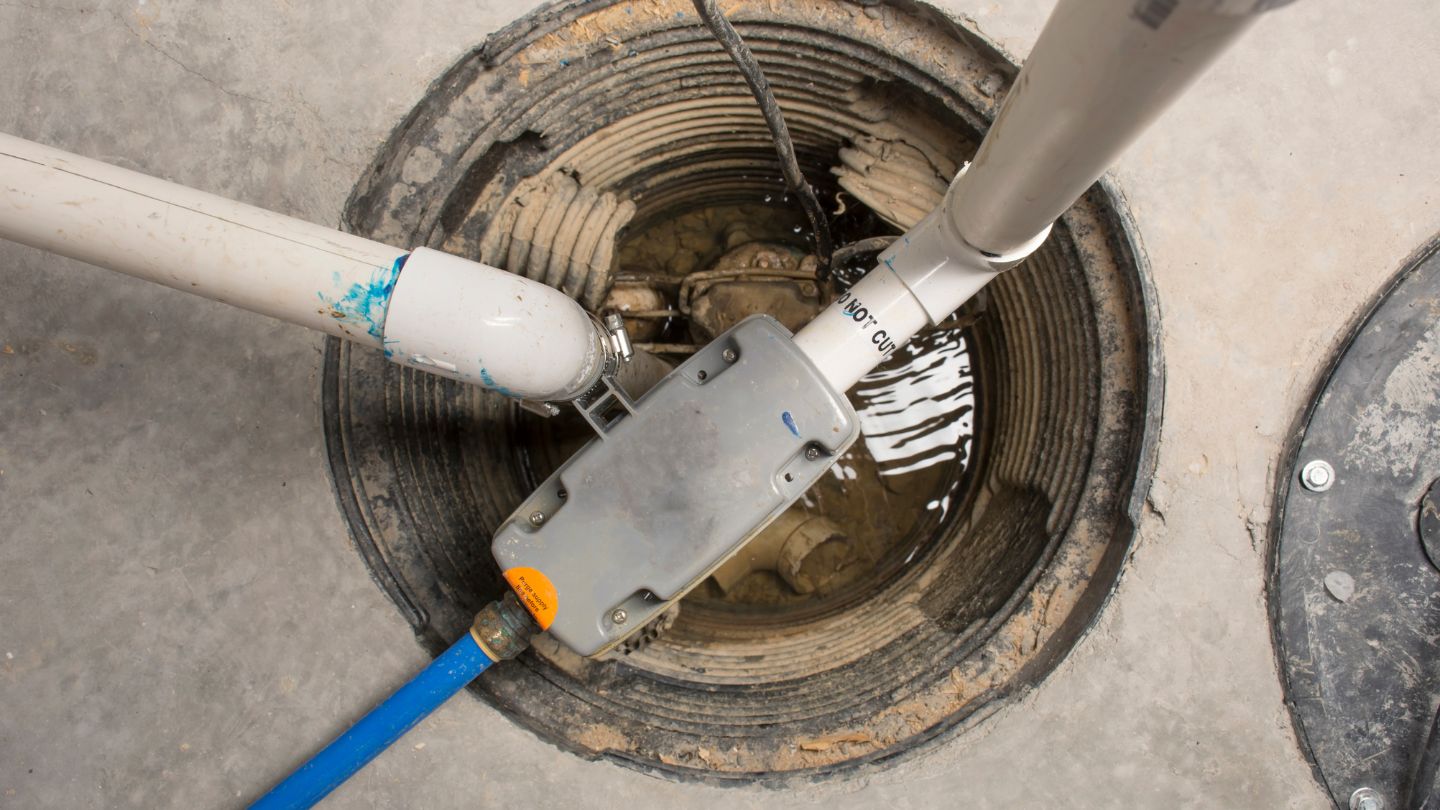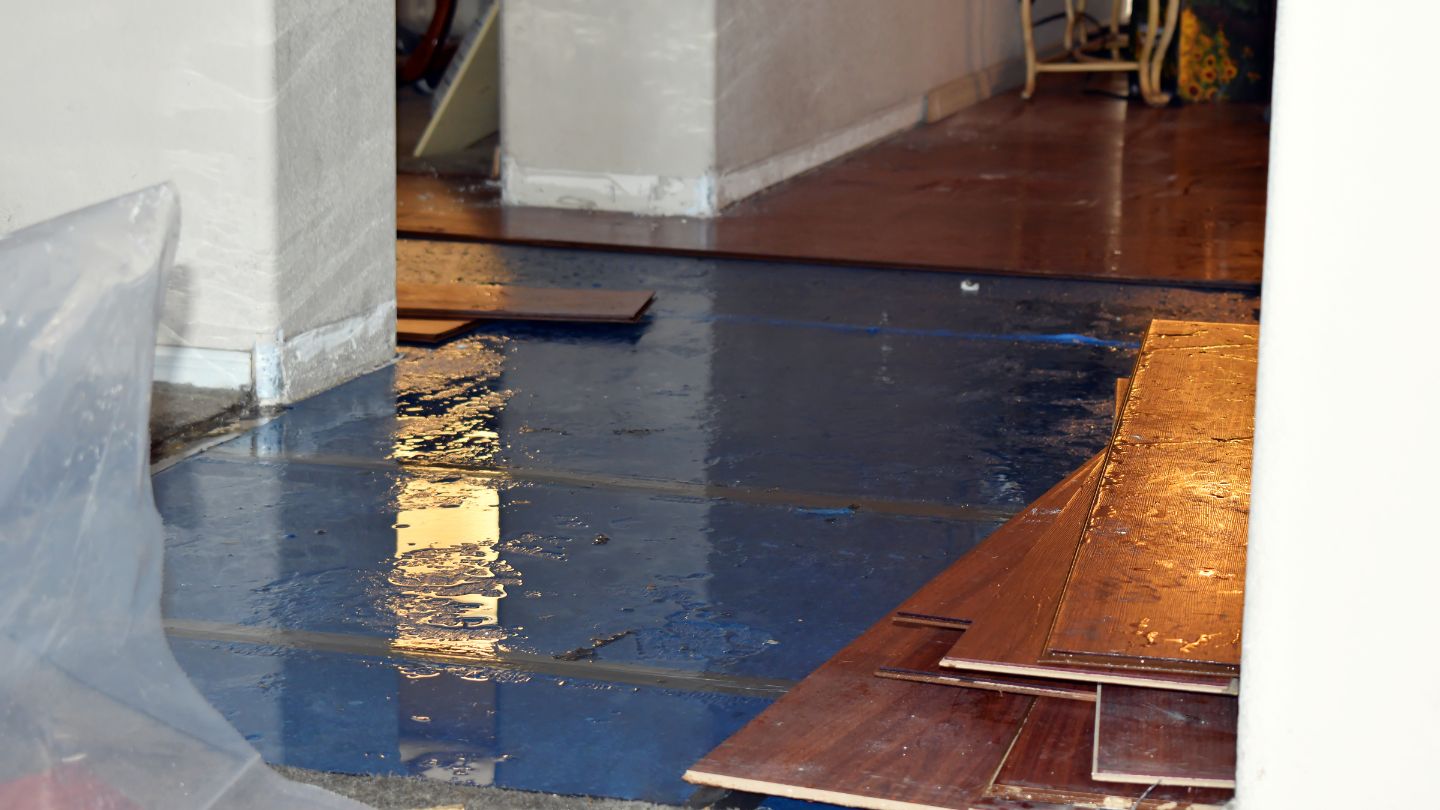Preventing water damage in Atlanta is essential for homeowners and business owners due to the city’s frequent storms and heavy rainfall. This article explores practical tips for preventing water damage in Atlanta: tips for homeowners and business owners, including routine inspections, proper sump pump use, and effective emergency preparedness. Learn how to protect your property and prevent costly repairs.
Key Takeaways
- Routine inspections of plumbing systems, roofs, and HVAC systems are essential to identify and mitigate potential water damage risks.
- Sump pumps and regular maintenance are crucial in preventing basement flooding during heavy rains and storms.
- Understanding insurance policies and documenting water damage are key steps in ensuring adequate financial protection and efficient claims processing.
Routine Inspections for Early Detection
Regular checks play a crucial role in thwarting water-related harm. By methodically scrutinizing critical regions of your property, you can catch and correct small issues before they worsen. It’s recommended to carry out these inspections at least biannually to proactively safeguard against hazards that could affect the plumbing system, roof, and HVAC unit.
The propensity of aging pipes to erode and potentially burst underscores the need for meticulous examinations. Adopting a schedule of consistent maintenance evaluations helps markedly diminish the chance of encountering leaky pipes and subsequent water damage while preserving your property’s structural soundness.
During standard inspections, prioritize areas that are essential in preventing water damage to maintain them effectively.
Inspect Plumbing System
Maintaining the plumbing system is vital for the overall health of your property, necessitating constant vigilance. By examining connections to appliances, you can identify potential problems that may cause leaks in advance. Proactively servicing appliances such as water heaters and dishwashers greatly diminishes the chances of facing leak-related issues or pipes bursting. Opting for steel braided hoses reinforced with steel when connecting these appliances can decrease the likelihood of leakages.
Roof and Gutter Maintenance
The function of your roof and gutters is vital in shielding your property from the adverse effects of water damage. Conducting routine checks to confirm that there are no missing shingles on your roof, as well as verifying its overall integrity, can be critical in thwarting water infiltration. During periods of heavy rainfall, if gutters are obstructed, they may overflow and consequently cause potential harm to both the walls and foundation.
HVAC System Checks
It is crucial to keep your HVAC system in good condition to avert water damage and promote a healthy indoor atmosphere. Routine upkeep of the HVAC unit aids in thwarting potential leaks and condensation that might culminate in severe water damage. Experts specializing in HVAC provide cost-effective maintenance options aimed at preserving systems functioning efficiently, thereby minimizing the possibility of issues pertaining to water.
Effective Use of Sump Pumps

Sump pumps serve as essential defenses to safeguard against the inundation of basements. They offer an extra measure of security, efficiently pumping out water that accumulates in a sump pit during periods of intense storms and significant precipitation. Grasping the workings and upkeep of sump pumps can protect you from the distress caused by water damage.
Install a Sump Pump
A sump pump serves as a preemptive defense for your basement against the onslaught of water during torrential downpours. Since crawl spaces frequently fall victim to water seepage, they are exceptionally suited for setting up a sump pump. To prevent any harm due to moisture penetration, it is essential to remove water swiftly, and this is where a sump pump proves indispensable by offering prompt action.
Sump Pump Maintenance
It is vital to maintain your sump pump regularly to guarantee its efficient functioning when it’s most needed. Conducting an annual test of your sump pump, especially before the onset of the wet season, is crucial. Keeping it clean will help avoid blockages that could impair its effectiveness in critical situations, which includes ensuring both the sump pit and unit are free from debris.
Monitoring Water Pressure
Keeping an eye on water pressure can serve as a preventative action to stave off substantial plumbing complications. Leaks or the rupturing of pipes may result from overly elevated water pressure, potentially culminating in extensive water damage. Indicators of worrying water pressure include appliances functioning poorly and a decline in shower water force. If sinks and toilets exhibit signs of leakage, this could signal an alarm.
Use Pressure Gauges
Pressure gauges are essential tools for monitoring water pressure in plumbing systems. They allow homeowners and business owners to detect potential water pressure issues early, preventing plumbing failures. Verifying water pressure with pressure gauges can help avert significant plumbing issues like leaks and bursts.
Professional Consultation
To avert substantial plumbing breakdowns and water infiltration, it is crucial to have ongoing water pressure problems assessed by skilled technicians. Enlisting the services of plumbing experts can assist in pinpointing and resolving chronic issues with water pressure before they escalate into significant system malfunctions.
Preventative Measures for Appliances
Appliances are a common source of water damage, making regular inspections and maintenance crucial. Inspecting appliance hoses for wear and tear can prevent leaks and costly repairs. Monthly checks of washing machine supply lines, looking for blisters or signs of wear, are essential. Homeowners should check their water heater’s anode rod every two years to prevent corrosion.
Regular Appliance Inspections
Periodic examination of the hoses and fittings on devices like water heaters and dishwashers is crucial for averting significant water damage. Changing out supply hoses for washing machines every five years is recommended, even if there’s no apparent deterioration. To guarantee that your water heater operates correctly and to reduce the chances of water-related harm, it’s important to have a plumber perform regular inspections and maintenance.
Replace Worn-out Parts
Over time, hoses connected to household appliances may weaken and become susceptible to leaks. By regularly checking these appliance hoses and keeping them current and well-maintained, you can greatly lower the chances of water damage occurring.
Emergency Preparedness

Formulating a contingency strategy is vital for homeowners to handle water damage incidents effectively. It’s important to devise a scheme outlining escape paths and key contacts for emergency situations involving water damage. Keeping an emergency kit stocked with necessities like sustenance, hydration, and sanitary products is crucial to ensure prompt response when faced with a water crisis.
Shut Off Water Supply
In the event of a leak, it is imperative to promptly shut off the water supply in order to reduce potential damage. This action is especially important if you are not present, as cutting off the water can thwart significant harm. The principal valve for turning off your water is usually located close to your property’s water meter or at its street-level equivalent.
Keep Important Documents Safe
Securing crucial documents in containers that are impervious to water can greatly diminish the potential for their loss amidst incidents of flooding. This action is key to averting substantial damage during situations involving water-related emergencies. Positioning these documents at an elevated level from the ground offers additional safeguarding against exposure to floodwaters.
Mold Prevention Strategies
Ignoring small leaks can lead to extensive water damage and mold growth. Leaking pipes are a common issue that can lead to widespread mold growth in homes. Neglecting minor leaks can result in black mold growth, mildew, and reduced indoor air quality. Maintaining roofs to fix small leaks can prevent them from becoming major leaks due to weather exposure.
Immediate Drying
To hinder the proliferation of mold following water damage, it is essential to dry out damp regions quickly. To markedly diminish the potential for mold spread, materials that have become wet ought to be dried in a span ranging from 24 to 48 hours. By quickly drying moist areas, one can impede the scattering of mold spores and thwart their establishment.
Use of Dehumidifiers
Utilizing dehumidifiers is an effective strategy to diminish the amount of moisture present in the atmosphere, which plays a vital role in thwarting the formation of mold. It is critical to keep indoor humidity levels under 60% with the help of dehumidifiers, as this is key for averting mold proliferation.
Insurance Coverage Awareness
It is essential to grasp the details of your insurance policy because a lot of them don’t include protection against water damage caused by neglect or slow-developing problems. Familiarity with what your insurance coverage entails can greatly alleviate monetary strain in instances of water damage. Homeowners insurance provides coverage for abrupt and unintended water-related issues. It frequently does not cover harm that results from maintenance failures.
Review Policies Regularly
Regularly reviewing your insurance policy is crucial to ensure that it adapts to changes in potential water damage risks. Regular reviews help identify any limitations or sublimits on water damage coverage. Policyholders should frequently assess their insurance policies to ensure they reflect current property values and risks.
Documenting Damage
Careful recording of water damage is crucial in streamlining the insurance claims procedure. Capturing extensive photos and videos of the destruction is vital for a favorable insurance claim outcome, assisting in assessing the extent of losses. Detailed imagery improves the likelihood of an approved insurance claim.
Summary
In Atlanta, protecting your property from water damage necessitates continuous vigilance and proactive maintenance, as well as preparedness for potential emergencies. Regular property inspections, efficient sump pump usage, monitoring water pressure, and implementing preventive measures with appliances are crucial steps to take. Being knowledgeable about mold prevention techniques and the specifics of insurance coverage offers further protection for your property.
For those in need of expert support, 911 Floods R Us provides a comprehensive water damage restoration service in Atlanta. Their specialized services ensure a thorough restoration process, safeguarding your home or business from severe water damage. Don’t wait to fortify your property; take proactive measures today. Contact us for immediate assistance.
FAQ
How often should I inspect my property to prevent water damage?
You should inspect critical areas like plumbing systems, roofs, gutters, and HVAC units at least twice a year. Regular inspections help identify potential issues early, such as leaks or wear and tear, reducing the risk of costly damage.
What is the purpose of a sump pump, and how do I maintain it?
A sump pump protects your basement or crawl space from flooding by removing accumulated water during heavy rain or storms. Maintain it by cleaning the sump pit, removing debris, and testing it annually, especially before wet seasons, to ensure proper function.
How can I reduce the risk of mold growth after water damage?
To prevent mold, dry wet areas within 24–48 hours, use dehumidifiers to maintain indoor humidity under 60%, and address leaks promptly. Quick action can stop mold from spreading and improve indoor air quality.
Does homeowners insurance cover water damage?
Homeowners insurance typically covers sudden, accidental water damage but excludes damage caused by neglect or ongoing issues. Review your policy regularly to understand its coverage and ensure it meets your needs.

